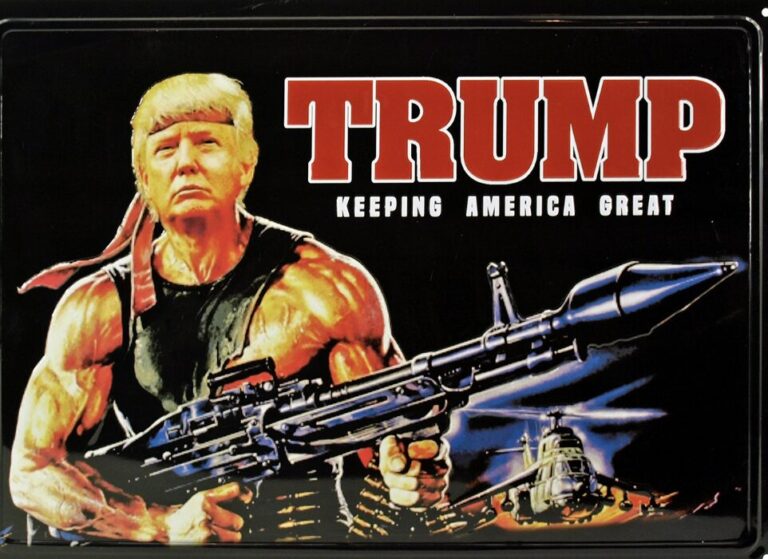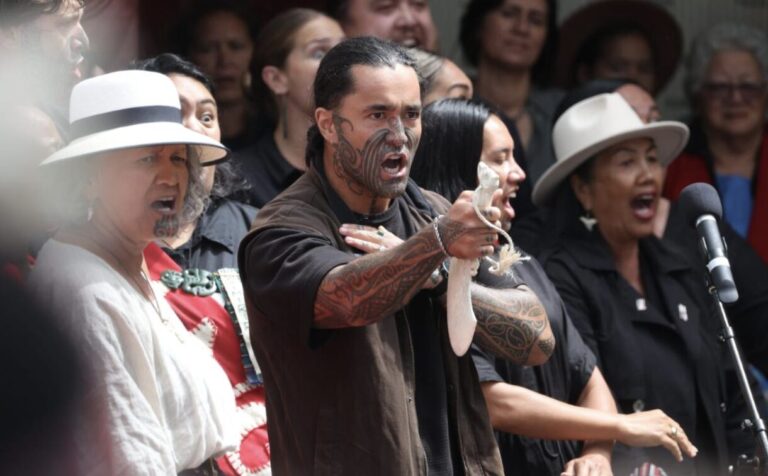Waitangi 2025 – Sovereignty and Settlements
Every rohe seems to have a Waitangi. There’s one at the end of town here in Opotiki. There’s a Waitangi village just before Te Puke. I think there’s one in between Gisborne and Wairoa. Even the Chathams have one. Quite fitting the Treaty is named for such a ubiquitous, Maori – in the sense of occurring naturally everywhere – placename.
Opotiki’s Waitangi Day – for Te Whakatohea – is 27 and 28 of May. No-one but a handful of people at the Hapu level have ever commemorated this. The Whakatohea Maori Trust Board and their kupapa gang only ever commemorated it once in my memory – when they used it as the date to sign a settlement deal with the government. A cynical coup de grace for the mercenaries and the fulfilment of a barely secret secret commission.
The kupapa have only the most shallow idea about the Treaty – and they signed all those rights away. If they appreciated what the Treaty means maybe they would not have agreed to let the NZ government abrogate it to the Iwi’s now permanent disadvantage. They do however appreciate what money means to themselves. They never commemorated it before and they never commemorated it after – the Treaty means nothing to them except the raw understanding that it is primarily a tool by lawyers to squeeze out some government funding. ‘Land back’ only counts to them if it is land going to the Iwi entity itself – not Hapu or whanau. If there is no government money coming their way for it they are not interested – they wouldn’t dream of funding anything from or for Hapu unless the government somehow was paying for it. Paying and controlling.
Nothing customary in a true sense has ever been supported; indeed the corporate sees any support of Hapu as a dimunition if its own mana. The government is paying the Iwi corporate – like the trust board before it – to usurp the mana of the Hapu. It is a simple thing to understand and yet is hidden as not to upset the government’s self-serving settlement mythology whereby the Iwi negotiators are heros and the Pakeha government is generous – neither is true, it is actually the opposite.
The dependency and parasitism is just like the old Maori Trust Board scenario, but with a bigger budget and no future Treaty settlement to placate the critics. The Treaty isn’t a fraud the Treaty settlements are.
The job of those post-settlement nepopalities is to suppress the relatively radical Hapu. The result of the “Treaty” settlement deal is a hollow sham.
This anniversary doesn’t seem worth commemorating now the NZ government have paid the kupapa for the violation of it over the top of everyone else’s objections. And especially since the UK-NZ Free Trade Agreement has come into force which states that the NZ government has the exclusive relationship with Maori under the Treaty and not the UK.
The Treaty has been completely violated by both the UK and NZ by displacing the UK without Maori consent. The small MFAT group of hand-picked Maori mercenaries is not the consent of the sovereign tribes who signed the Treaty. An MFAT contact group that met only once and was never consulted thereafter is not the consent of the Treaty signatories.
So, when I think of Waitangi Day I’m thinking of how the Treaty applies to my own tribe in our territory and how badly, brutally, bastardised the thing is. Abused all round.
And I haven’t got to the Treaty Principles Bill.
This Waitangi Day my neighbour had an Independence/United Tribes flag flying – first time they’ve ever had any flag up.
There it was: a decent breeze, it’s at full stretch and it’s brand new. It stands out. Why choose that one? Why not the Tino one? Ambled over with an offering of semi-ripe peaches. One of them had on a Tino sarong and explained they did – in fact – display both. Respect. I used to fly an Independence flag too – it ended up in the tree, a long story – so it’s sort of still up there in a sense.
The 1834 flag is the most popular around here by far. It is the popular choice. Ask the Koreans. Just go to the dollar shop to find out the real popularity of something – the Independence outsells the Tino about 3-1. Love the Tino flag of 1990, but it is the Confederated flag of the United Tribes that has an assertion of national sovereign mana that most people in the Eastern Bay prefer. It is about mana motuhake – independence. I strongly suspect that the reason the Tino flag seems more prevalent is because it is preferred by the NZ government entities as the “official” Maori flag and by corporate Iwi for the same reason. Can’t handle the mana of the 1834, it’s a bit too top shelf for the people with government funding.
What does that alert you to? It is the pre-Treaty sovereignty that is being invoked by Maori. The importance of the Treaty rests with the acknowledgement it makes if that earlier sovereignty.
The neighbours and I didn’t really talk about Waitangi at all per se. The rapacious land-thieving white man came in for some mumbled discourteous language, but no discussion with anything happening at Waitangi. How Te Kooti was never captured and retired when he wanted to, how he had the best horse in the world who would go through thick and thin with him not like the horses nowadays that would probably have thrown him that time on the cliff. But we didn’t discuss Waitangi. It’s why we were discussing it, but we weren’t talking about the Treaty or what was happening in Waitangi up North. Waitangi is now internalised.






‘ NZ is not unique in being a conquered land .’ Trevor
Ka whawhai Tonu matou
Ake! Ake !Ake!
That proves Aotearoa is not a conquered land. Only the armed struggle is over. The legal and political battles continue and are being won.
The sovereign nations of Ireland, Wales and Scotland is also proof that the conquest of Britain did not take place.
Trevor you keep doing this thing where you say injustice and cruelty happened in the past so let us keep doing it. It is a weird ‘two wrongs make one right when I want it to’ philosophy( you had a hard time so other people should have one too, Vikings fell on the English with fire and sword so it is all right to keep doing this somewhere else, we can keep repeating mistakes from the past if white people profit from it).
The idea is society progresses, not goes into reverse.
You show why the sun never set on the British Empire( nobody wanted to trust the British in the dark).
Good summary Stevie. These people who try to tell us it’s all to be expected and just face that fact, really get me.
Why can’t things be different in NZ? Having started off on a better footing than many, with a treaty, why can’t we go on from there, IN GOOD FAITH?
That is the main point. People who come to negotiate with a conclusion already decided in their heads, for whatever reason, are not acting in good faith.
They intend to bully everyone into submission, not to listen and adjust expectations.
In Justin Tipa’s speech at Onuku on Waitangi day, which Light above, kindly provided a link to, he says several times ‘We are not the radicals’.
They are the ones defending the agreements that have been decided over nearly 200 years. Those agreements have often been broken, seldom by Māori.
They are reminding everyone to defend those agreements, not seek sneaky ways to circumvent them.
Not to manipulate new immigrants with cleverly worded catch-phrases to unbalance the equation.
Not to stack institutions where Māori can have a say, with people who won’t have a say for Māori.
Not to pretend that Māori are the radicals suggesting something outlandish, causing trouble.
Trevor and Co. wouldn’t have found NZ such an attractive place to emigrate to if it hadn’t been for te Tiriti. They saw something here that wasn’t present in Australia, Canada, USA etc. but they’ve never asked themselves what that was. It wasn’t simply the absence of snakes.
Yes, our society needs to progress, not go backwards. Doesn’t matter what’s happened all over the world in the past or indeed, what’s happening now in many places.
We have the advantage of having this treaty which started us heading in a better direction.
Are we collectively, so stupid that we cannot understand the advantage that gives us?
Sorry, I don’t know how to link to things and couldn’t find a way to share.
However, reading the short version of Audrey Young’s comments re the speech by Justin Tipa at Onuku Marae yesterday, prompted me to look up his entire speech. WOW!
As Audrey rightly says – that’s what leadership looks like.
If you have half an hour, have a look.
Mr. Luxon didn’t get a free pass at all by going there, if he was listening.
Brilliant speech, thanks Joy. Here’s the link
https://ngaitahu.iwi.nz/connect-2/connect/news-and-stories/ngai-tahu-kaiwhakahaere-justin-tipa-hui-whakau-i-te-tiriti-ki-onuku-waitangi-day-2025-commemoration-speech/
Thank you Light. That’s easier.
Article 2 of the contract signed at Waitangi is quite clear. Maori retained ownership of their lands for so long as they wanted to. Those hapu who wanted to keep their land, under article 2, had it stolen by conquest, by military force, by confiscation. The Treaty was a sham. A settlement of 3% of value is a fraud.
We have had both flags flying on the SH25 bridge for over a year now. The way I see it is that the Whakaminenga flag represents te Whakaminenga as the sovereign institution of Aotearoa, while the rangatiratanga flag represents the principles under which te Whakaminenga is constituted – so institution and principles given equal weight and prominence.
You write “and they signed all those rights away. If they appreciated what the Treaty means maybe they would not have agreed to let the NZ government abrogate it to the Iwi’s now permanent disadvantage.” and “The Treaty has been completely violated by both the UK and NZ by displacing the UK without Maori consent”
I think that is an unnecessarily pessimistic view. Nothing and no one can take away the right of rangatiratanga. Nothing and no one can deprive us of the sovereignty of te Whakaminenga.
The same applies to the rights of hapu. Rangatiratanga starts with whanau, then hapu, and it goes on to encompass iwi before culminating in te whakaminenga. It is a system in which authority originates at the base and is delegated upwards. If that order is reversed, then it is no longer rangatiratanga.
All we can do, and all we have to do, is to keep on working to strengthen the hapori at the local level. Nothing has been lost. Whanau and hapu are still there with eternal and inviolable rights.
But a very good read, Tim, giving us much to think about.
The leaders of Ngai Tahu and Tainui (whose settlements are similar to that of Whakatohea) some 30 years ago were not as ignorant or as mercenary as Selwyn implies. Yes, they are iwi rather than hapu settlements, as have been all settlements, but that hardly makes them sham settlements.